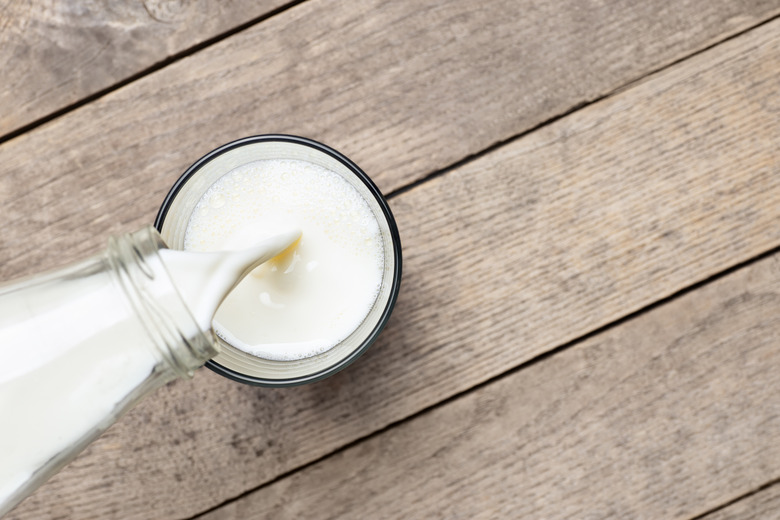What Is Lactase?
Milk and cookies, macaroni and cheese, ice cream: For many people, milk and milk-based items are the comfort foods they turn to in times of stress as well as celebration. However, for some individuals, those foods instead produce discomfort in the form of gastrointestinal distress. The explanation for this misfortune lies with one enzyme: lactase.
TL;DR (Too Long; Didn't Read)
Lactase is a "brush border" enzyme that breaks down the milk sugar called lactose into two simpler sugars, glucose and galactose. Cells in the intestines produce a great deal of this enzyme during infancy, when milk is the primary food source. However, its abundance declines with age. For many people, age-related changes or mutations in the LCT gene produce a lactase deficiency that makes it difficult or impossible to digest lactose. Undigested lactose produces gas as a result of fermentation by bacteria in the colon.
What Is Lactase?
What Is Lactase?
Enzymes are proteins that provide the power behind chemical reactions. In the human body, digestive enzymes break food into tiny particles that can pass the brush border, which is a chemical boundary that food must cross for absorption by the intestines. During the digestion of milk products, lactase is the enzyme that breaks down the milk sugar lactose into simpler sugars called glucose and galactose. This enables the intestines to absorb those sugars for immediate use or storage as energy for powering the body's movements and processes.
LCT Gene and Lactose Intolerance
LCT Gene and Lactose Intolerance
The gene LCT controls lactase production. Mutations in this gene can produce a heritable deficiency in lactase, resulting in lactose intolerance, or the inability to properly digest foods containing lactose. This condition also occurs with age in much of the human population. While the majority of infants produce copious amounts of lactase to enable the digestion of an all-milk diet, lactase production declines as humans age and begin consuming other types of food. For people with lactose intolerance, lactose not broken down by lactase moves into the colon, where gut bacteria ferment it. This fermentation produces gas and results in considerable discomfort for the lactase-deficient individual.
Options for Lactase Deficiency
Options for Lactase Deficiency
Of course, some people who are lactose-intolerant still prefer to eat or drink foods that contain lactose. One option is to use dairy products that contain added lactase, which breaks down the lactose in the carton or container before consumption. Non-dairy alternative milk derived from plant products such as soy, rice, nuts or hemp is another option since this milk is naturally lactose-free and therefore does not require lactase.
Cite This Article
MLA
Mayer, Melissa. "What Is Lactase?" sciencing.com, https://www.sciencing.com/lactase-5038607/. 20 August 2018.
APA
Mayer, Melissa. (2018, August 20). What Is Lactase?. sciencing.com. Retrieved from https://www.sciencing.com/lactase-5038607/
Chicago
Mayer, Melissa. What Is Lactase? last modified August 30, 2022. https://www.sciencing.com/lactase-5038607/
